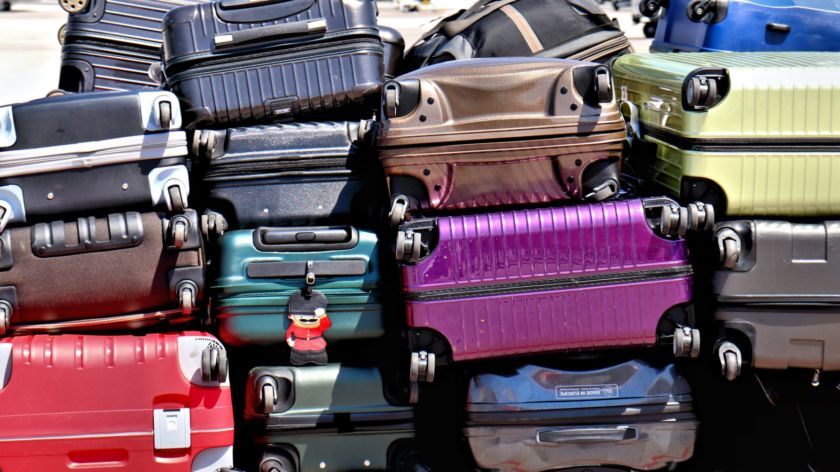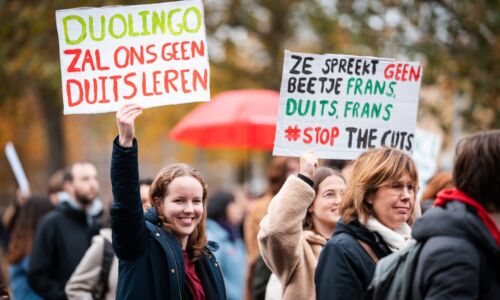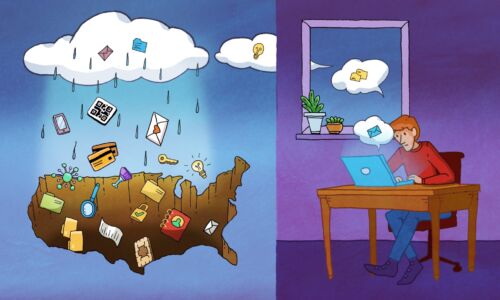The exchange programme has started again, many students stay in Europa
-
 Foto: Elisabeth Masek, Creative Commons
Foto: Elisabeth Masek, Creative Commons
After a year without international exchange students, Radboud University welcomes 270 foreign students again this academic year. Also, 194 students temporarily left Nijmegen for a semester abroad.
From Iceland to Malta, from Portugal to Latvia and even in South Korea: Nijmegen students can be found all over the world this academic year. This year, a total of 563 students applied to spend a semester – or entire academic year – abroad. On the other hand, 270 students came to the Waalstad from abroad. In both cases, these numbers are less than before the corona crisis.
The most popular outbound destination among departing students is Spain
The most popular outbound destination among departing students is Spain (38), followed by Italy (28) and France (14). The top three countries of origin of international students are Italy (65), Spain (42) and Germany (39). But also students from further away, such as Norway and Romania. Only one student comes from outside Europe, from South Korea.
Departing students
The number of departing students has grown tenfold in relation to last year, when only 52 students went abroad due to the global corona pandemic. Compared to the previous years, the total of 563 outbound students is still not back to pre-corona levels: the academic year before corona saw 741 outbound students.
Moreover, of the 563 students, only 194 actually left in the first semester, the remainder are applicants for the second semester. The number for the second semester can still increase, requests can be submitted until 1 November. However, the number of incoming students still lags far behind compared to the numbers before the pandemic: 270 to 559.
Earlier, 717 students had applied for a period abroad. Rob van Leeuwen, manager of International Mobility & Partnerships, attributes this reduced number to ‘cancellations due to not meeting the exchange criteria, partner universities cancelling their exchange programmes in the first semester and students cancelling for private reasons’.
South Korea
‘Safety for students during exchanges is one of the most important criteria for an exchange this year, with the ongoing pandemic. The travel advice of the Ministry of Foreign Affairs was leading for this semester’, said Van Leeuwen. That advisory had to be yellow or green before an exchange would be possible.
In addition, there are more opportunities for exchanges within Europe than outside. So a number of students have diverted their trip to a destination within Europe, while they were originally going to a destination outside Europe.
South Korea, where four students went to, was one of the first countries outside Europe where exchanges were possible. Many other countries outside the European Union did not receive a positive travel advice in time to make exchanges possible. ‘Timing is important, because visas have to be arranged – and they can take a long time. Whereas within Europe, this is less of a problem’, said Van Leeuwen.
‘I am pleased to see that the first exchanges will again be possible’
‘Many partner universities outside Europe were unavailable for exchanges in the first semester’, he continues. ‘Think of universities in countries like Australia and New Zealand and also some in Canada and the United States. Some of these students decided to postpone their exchange until the second semester.’ The latter is reflected in the number of departing students in the second semester, which is higher than in the years before corona.
‘I am pleased to see that the first exchanges will again be possible this semester. After a year with few opportunities for international experience, it is very good to welcome and to say goodbye to students again’, says Van Leeuwen. On the other hand, he is disappointed that the exchange programme is not at the same level as it was before the pandemic. ‘I still hope that in 2022 as many students as possible can go abroad without restrictions. To have a great experience there.’



